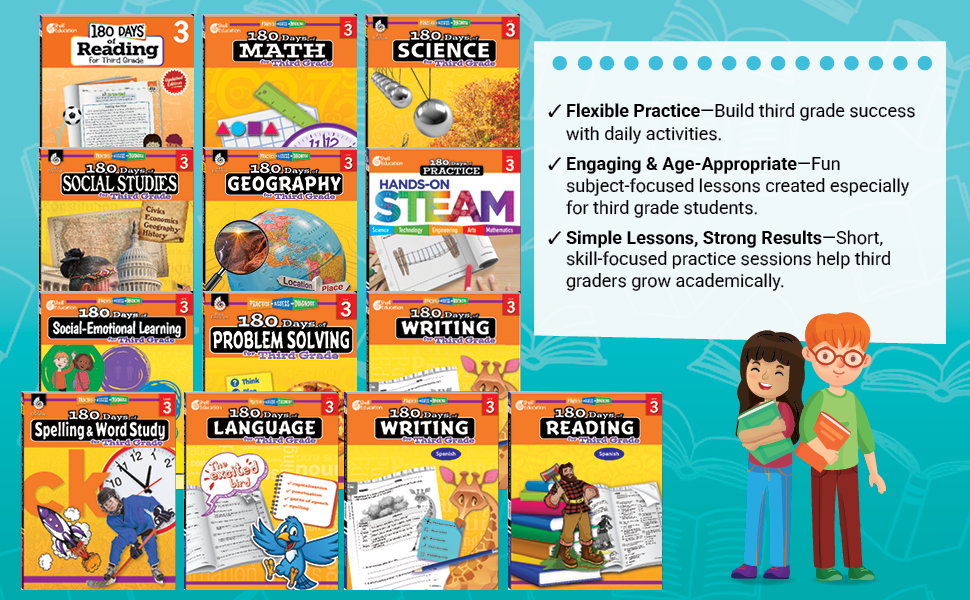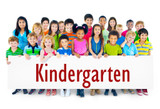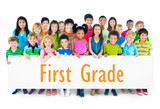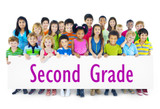What Your Third Grader Should Be Learning
Third grade represents a significant milestone in a child's academic journey, characterized by increased independence, deeper exploration of subject matter, and the development of critical thinking skills. As children transition from the foundational skills of earlier grades, they embark on a journey of discovery across various academic disciplines. In this article, we delve into what your third grader should be learning and why these skills are crucial for their continued growth and success.
1. Reading Comprehension and Fluency: Third graders focus on refining their reading comprehension skills by analyzing texts more deeply, making inferences, and drawing conclusions. They develop fluency in reading aloud and engage in discussions about characters, plot, and themes. Exposure to a variety of genres, including fiction, nonfiction, poetry, and drama, broadens their understanding of literature and language.
2. Writing Proficiency and Composition: Third graders continue to expand their writing abilities by crafting more complex and cohesive pieces. They learn to structure paragraphs, incorporate transitions, and use descriptive language to enhance their writing. Writing across different genres, such as narratives, expository essays, and persuasive arguments, fosters creativity, critical thinking, and effective communication.
3. Mastery of Math Concepts and Problem-Solving: Mathematics in third grade involves mastery of foundational concepts such as multiplication, division, fractions, and geometry. Third graders engage in problem-solving activities that require critical thinking, reasoning, and mathematical strategies to solve real-world problems. Developing a strong foundation in math lays the groundwork for success in more advanced mathematical concepts.
4. Vocabulary Expansion and Language Skills: Third graders continue to expand their vocabulary through exposure to rich and diverse language experiences. They learn new words through context, prefixes and suffixes, and word analysis activities. Developing strong language skills not only enhances communication but also supports academic achievement across all subjects.
5. Scientific Inquiry and Exploration: In third grade, children deepen their understanding of scientific concepts through hands-on exploration and inquiry-based learning. They conduct experiments, make observations, and draw conclusions about topics such as ecosystems, energy, matter, and the scientific method. Engaging in scientific inquiry fosters curiosity, critical thinking, and a deeper appreciation for the natural world.
6. Social Studies and Historical Understanding: Third graders explore topics in social studies that expand their understanding of history, geography, civics, and culture. They learn about different historical events, influential figures, and cultural traditions, developing an appreciation for diversity and empathy for others. Studying history and social issues fosters critical thinking, citizenship, and a sense of global awareness.
7. Critical Thinking and Analytical Skills: Third graders develop critical thinking skills through analysis, evaluation, and problem-solving across various subjects. They learn to interpret information, make connections, and draw conclusions from texts, data, and evidence. Engaging in discussions, debates, and collaborative projects enhances their ability to think critically and creatively.
8. Digital Literacy and Technology Integration: As technology continues to play a significant role in education, third graders develop essential digital literacy and technology skills. They learn to navigate digital tools, conduct research online, and use multimedia resources responsibly. Building proficiency in technology prepares them for success in a digitally connected world and fosters adaptability in an ever-evolving technological landscape.
9. Continued Fine Motor Development: Fine motor skills continue to be refined in third grade through activities such as handwriting, drawing, painting, and crafting. Strengthening fine motor skills enhances dexterity, precision, and coordination, supporting tasks that require manipulation of small objects and tools.
10. Growth Mindset and Resilience: Third grade is an opportune time to cultivate a growth mindset and resilience in children. They learn to embrace challenges, persist in the face of setbacks, and view mistakes as opportunities for learning and growth. Developing a positive attitude towards learning fosters confidence, perseverance, and a lifelong love of learning.
In conclusion, third grade is a critical year for building upon foundational skills and fostering deeper understanding and inquiry across various academic disciplines. By focusing on reading, writing, math, critical thinking, and social-emotional development, educators and parents can ensure that third graders are well-equipped for the challenges and opportunities that lie ahead. It's not just about what children learn in third grade, but how they learn and the skills they acquire to become lifelong learners and contributing members of society.
Recent Posts
-
What Your Kindergartener Should Be Learning
Kindergarten marks the beginning of a child's formal education journey—a time of exploration, discov …Jan 7th 2026 -
What Your First Grader Should Be Learning
First grade is an exciting time in a child's educational journey. It marks the transition from the e …Jan 6th 2026 -
What Your Second Grader Should Be Learning
Second grade is a pivotal year in a child's educational journey, marked by continued growth and expl …Jan 5th 2026





